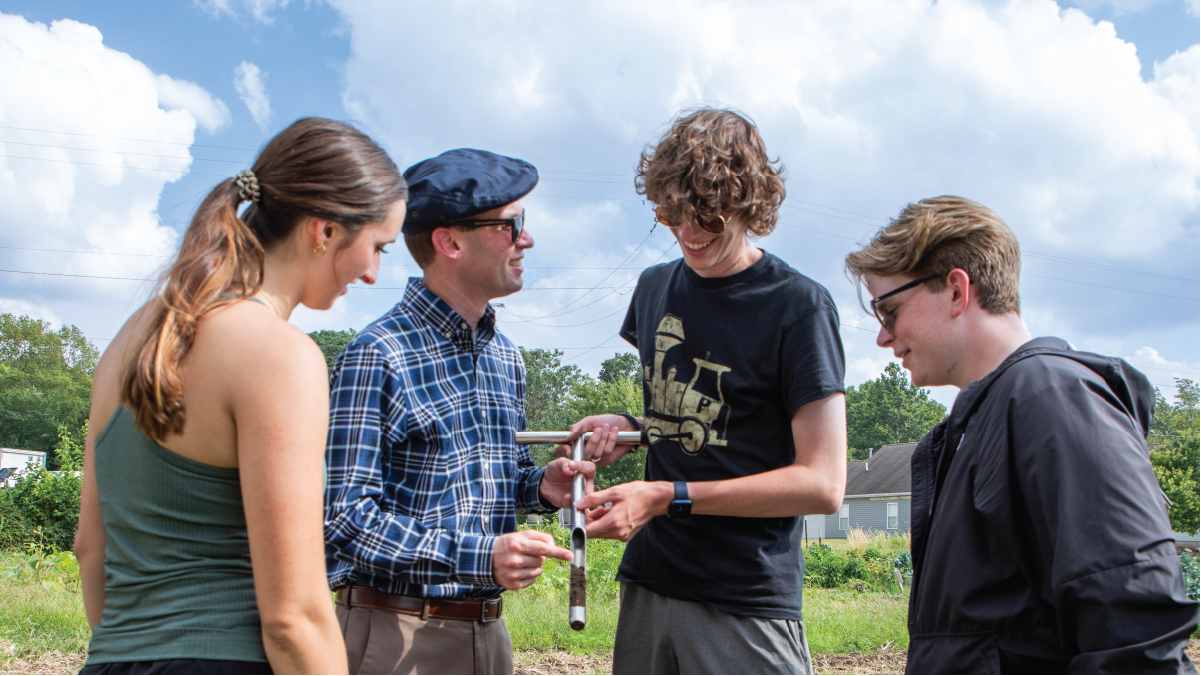The Science of Teaching Science
09-12-2023

Jacob Adler, assistant professor of practice in biological sciences in the College of Science, is excited to bring meaningful, authentic research opportunities to first year biology students in his classroom. However, he knows that there is always room for improvement in teaching methods, and, through his research, he hopes to help students find a sense of belonging in science and develop their community.
Adler’s research is in best practices in teaching and learning, and the development of course-based undergraduate research experiences (CUREs). He seeks to understand the long-term implications of CUREs, especially for alumni and their learning beyond Purdue.
Another aspect of his research is finding ways to increase equity in terms of access to science through alternative grading strategies. He examines how and when these strategies are more equitable and ways grading practices can be modified to prevent increasing barriers to education and the sciences.
“There is a growing base of evidence that when we give students opportunities to demonstrate growth in meeting learning goals in our courses by providing them with multiple attempts or grading schemes it helps remove barriers to student learning in higher education" says Adler.
Adler’s goal is to implement research-based strategies to develop community through experiential learning and mentorships early as they are instrumental in helping form students into the scientists they want to become. A key way of encouraging growth is to get undergrads involved in community partnerships.
One example is the field experience first year biology students will soon have with GrowLocal, a non-profit that helps establish urban sharing gardens.
Over 200 students along with their teaching team members will travel to Erie Street Community Garden in Lafayette to collect soil samples that will be used for biological analysis later this semester as a part of a research project. Isolated bacterial DNA from the soil samples is sequenced to determine the microbiome biodiversity at interesting locations in the garden. The information gathered will be used by the garden for improving best-practices for growing various produce.
Experiences like these provide enhanced engagement opportunities for students to cultivate mentorships with their teaching team members. Further, mentorships are formed by continual engagement with the community partners at GrowLocal. Students have opportunities to grow their community by volunteering with the gardens throughout their time at Purdue.
As an undergrad alum of Purdue, Adler learned the value of early research opportunities and having an involved mentor. He started as a pre-vet student in the College of Agriculture, but soon realized that his true interest was in the biochemistry lab research he was able to be a part of in Dr. Andy Tao’s lab. He changed his major to biochemistry and graduated in 2008.
Tao set an example of what a great professor could be and awakened in Adler a love of teaching. As a PhD student at Indiana University, Adler was able to teach in Indianapolis high schools in Indianapolis through the NSF-funded GK12 program. He honed his craft over the next ten years at a small teaching school in western Kentucky developing his expertise in evidence-based pedagogy and best practices in bringing research experiences into the undergrad classroom.
And now, Adler brings his life experiences and extensive research full circle to his alma mater.
Written by Alisha Referda, Communications Specialist